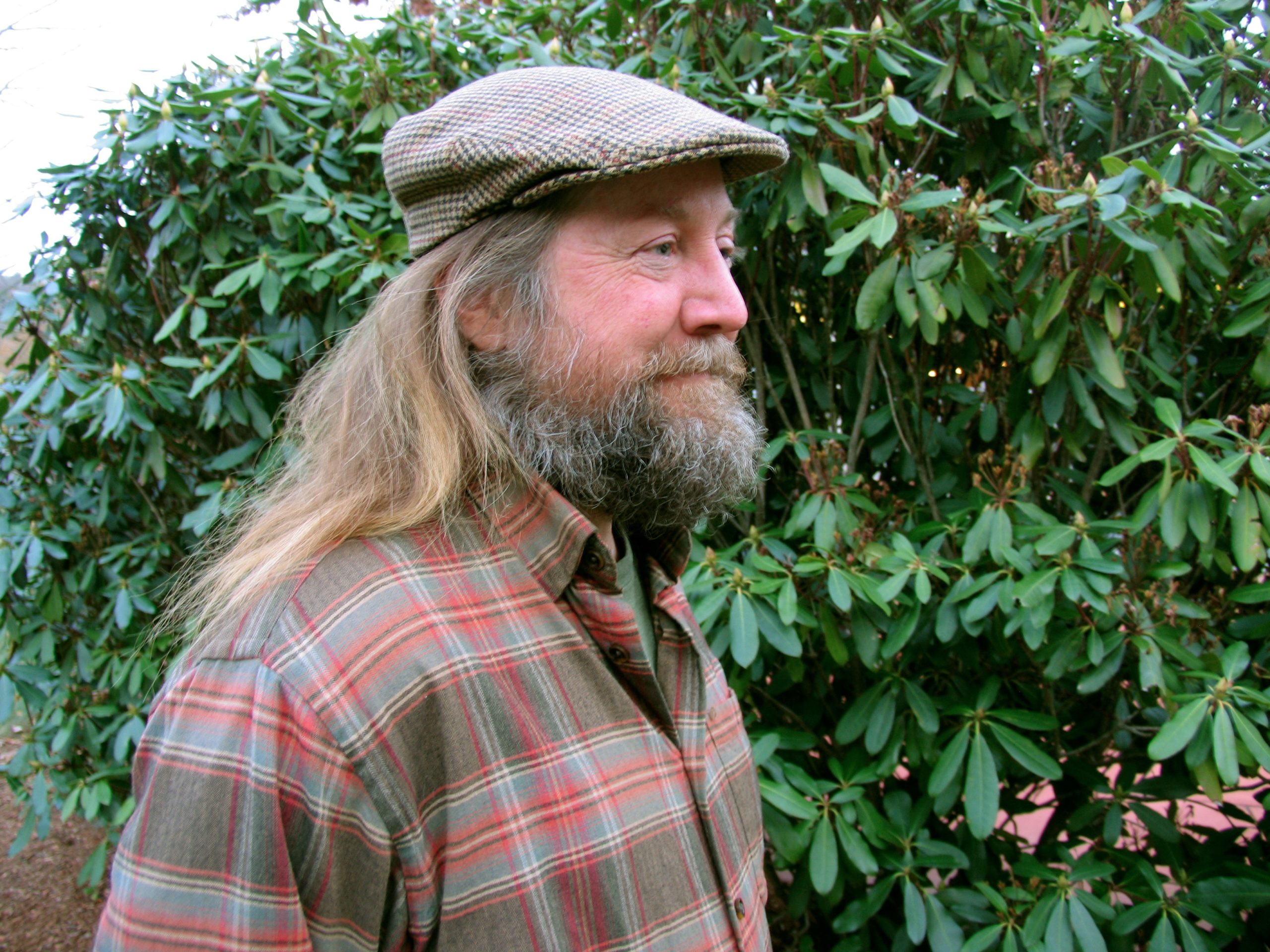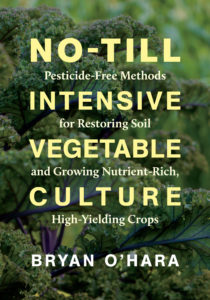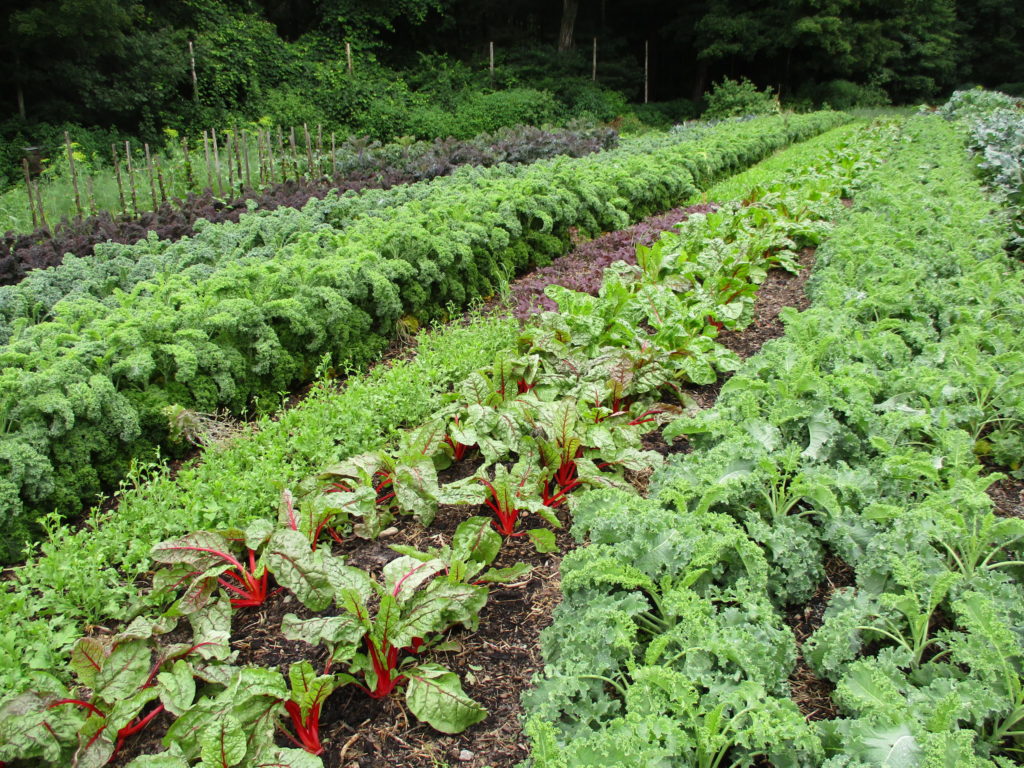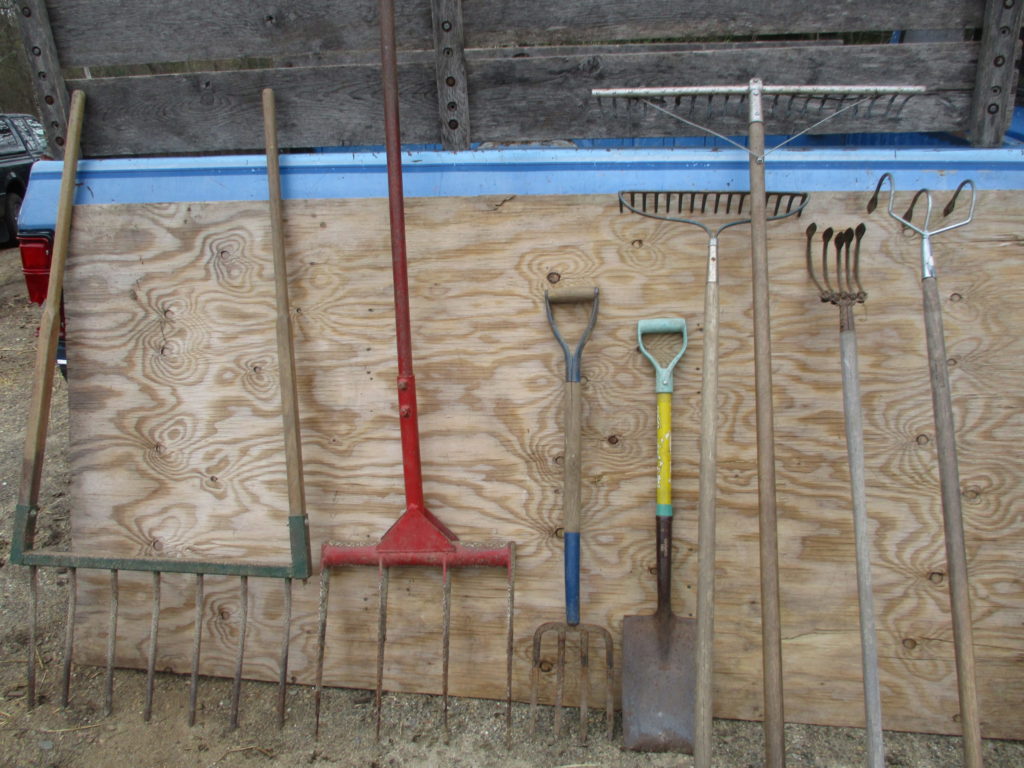
May 13, 2020
Book details biodynamic grower’s 30 years of no-till practices
Bryan O’Hara once struggled to ramp up pesticide-free vegetable production on a few acres for his livelihood, but after 30 years of labor and learning, he’s sharing his years of accumulated knowledge of what works.
Changes he made in his organic growing practices and eventually getting into biodynamic vegetable production are explained in detail in a new book. “No-Till Intensive Vegetable Culture: Pesticide-Free Methods for Restoring Soil and Growing Nutrient-Rich, High-Yielding Crops,” from Chelsea Green Publishing takes the reader down the path he’s followed, showing specific practices that have worked for O’Hara’s farm in Lebanon, Connecticut.
An Outstanding Commitment

Although his farm is small – just 3 acres – his commitment to that bit of land has earned respect from his peers in the industry.
Bryan O’Hara was the Northeast Organic Farming Association’s 2016 Farmer of the Year. “Master farmer Bryan O’Hara has built an integrated philosophical framework and operations manual for this blessed work that has so much to offer both farmer and eater,” Fedco Seeds founder C.R. Lawn says in a promo for the book.
That knowledge is the result of a lot of hard work. O’Hara and his wife Anita started farming the site in the early 1990s, renting a small house on the site and making a start with “hand tools, a chain saw, a pickup truck and a borrowed rototiller,” as he writes in the intro to the book.
The soils there at that time were in poor shape, and working them into condition to be farmed for consistent profitability has been a labor of love for the couple.
They’ve gradually discovered what works over the years, incorporating advice from a variety of sources: an elderly neighbor named Gilbert Risley who used to farm commercially during the mid-1900s, an intern who introduced the couple to Korean natural farming, and the practices associated with biodynamic agriculture, which they discovered on their own.
And they found success by farming intensively on those 3 acres. They farm one crop after another in tight spacings with low tunnels and high tunnels for winter production.
“By intensifying, we were able to have more efficiency of systems,” he said. “Small can be very efficient.”
As for going big, don’t think he hasn’t thought about it. In his early 20s, O’Hara had originally hoped to launch into larger-production and at one point began amassing tractors and equipment, planning to rent 12 acres.
“I was headed that way when luckily, my wife reigned me in,” he said. “What she said was, the farm was already profitable – certainly as profitable as we needed it to be, and we were already working all the time. So why why were we going to go to greater acreage and effort when everything was already operational and perfectly what we were looking for in terms of our life?”
A Details Man

The book is filled with details of his brand of no-till, intensive vegetable cultivation.
For instance, for a short period of time each spring, he uses a plastic cover to capture sun rays, heating the soil enough to kill weeds – a technique growers know as solarization. When it’s about 75°F and sunny, he’ll mow down a quarter acre of winter cover crops, and throw down clear plastic to toast the weeds and prepare for planting. The process itself can take less than an hour, and with enough light and heat, little time is needed to get the right level of weed dieback, he said.
“It can be as little or short as one day,” he said. And then the ground is ready for planting, and he can move on to the next quarter-acre of his farm.
He uses organic matter for mulches that eventually break down and enrich the soil – and that’s something that could translate to larger farms if growers can mechanize delivery to the fields.
“Out here we have access to tremendous volumes of basically free mulch materials in the form of leaves and wood chips,” he said. “There’s just such excess of those materials from road clearing, land clearing, landscaping cleanups. … often we’ll pay for the trucking or delivery or something like that but essentially the materials are free, and it’s just a matter of getting the system mechanized for delivery whether it’s manure spreaders, dump spreading/dump trucks. Mulching can go very quickly if it’s well-mechanized.”
O’Hara said many practices can be implemented on a larger scale, but he’s quick to stick up for smaller farms like his own Tobacco Road Farm (it doesn’t grow tobacco, just a lot of different vegetables). There’s efficiency, he said, to having a smaller plot, with good crop rotation.
“We grow every vegetable,” he said. “We’re not selling one crop to a commercial market. We’re delivering to restaurants, farmers’ markets.”
He maintains that based on talking to small growers from China and Ghana, 3-5 acres seems to be about the size a family unit can intensively farm and effectively weed.
“How many times have I seen growers in 10-20 acres or more, and their weed control is really not that great?” O’Hara said. “They put a lot of time and effort into it, and there are still weeds. If you control the weeds and you end up with no weeds and no weeds going to seed, weed control becomes a much easier task.”
Reducing tillage practices is a good way to manage air and water in the soil, he said.
“The soil is a living, breathing entity full of organisms that need exposure to the atmosphere in order to properly function,” he said. “By cutting off the air, in particular, with a crust, you change the biological nature of the soil underneath. A well-aerated, although not over-aerated, soil can provide that environment very effectively.”
Tillage can disrupt the natural structure of the soil and lead to skewed mineral releases, he said.
“A tillage event can provide excessive aeration often and those conditions often lead to a nutrient flush release,” he said. While a nutrient flush can provide a short period of growth, it’s not in the long-term best interest of the soil and thus the farm as a whole, he said.
“You’re upsetting this beautiful balance that nature has set between air, water and soil and the biology that’s there in the soil,” he said.
Bio-What?

Since biodynamic growing techniques have been such a help at his own farm, O’Hara said it’s unfortunate that school of thought isn’t better understood.
Organic agriculture certainly respects the ground, biodynamic growing techniques go beyond simply refraining from the use of artificial chemistries, entering more into the philosophical realm. “Biodynamics is a holistic, ecological, and ethical approach to farming, gardening, food, and nutrition,” according to the website of Biodynamics Association based in East Troy, Wisconsin.
“Biodynamic is much more based on more spiritual concepts,” O’Hara said. “It really has a lot to do with working with nature as a living entity as God’s creation. It definitely is a more holistic view that incorporates the spiritual world into the work you’re doing on the farm.”
While organic agriculture has respected the soil, he said, it’s been somewhat simplified through standardization.
Although there is a certification program for biodynamics, you’re not beholden to work with a certifier if you just want to incorporate a few concepts.
Biodynamics leader Rudolf Steiner’s ideas formed the basis for the biodynamic movement, but O’Hara notes that Steiner himself was quite flexible.
“He talked tremendously about how what he was putting forth wasn’t dogmatic, and you need to continue to develop your ideas and how to work with natural systems in order to have effective agricultural systems,” O’Hara said. “Biodynamics is really strong on understanding how natural systems work, just how water works on the earth, or air, and how all the living systems on the earth work.”






